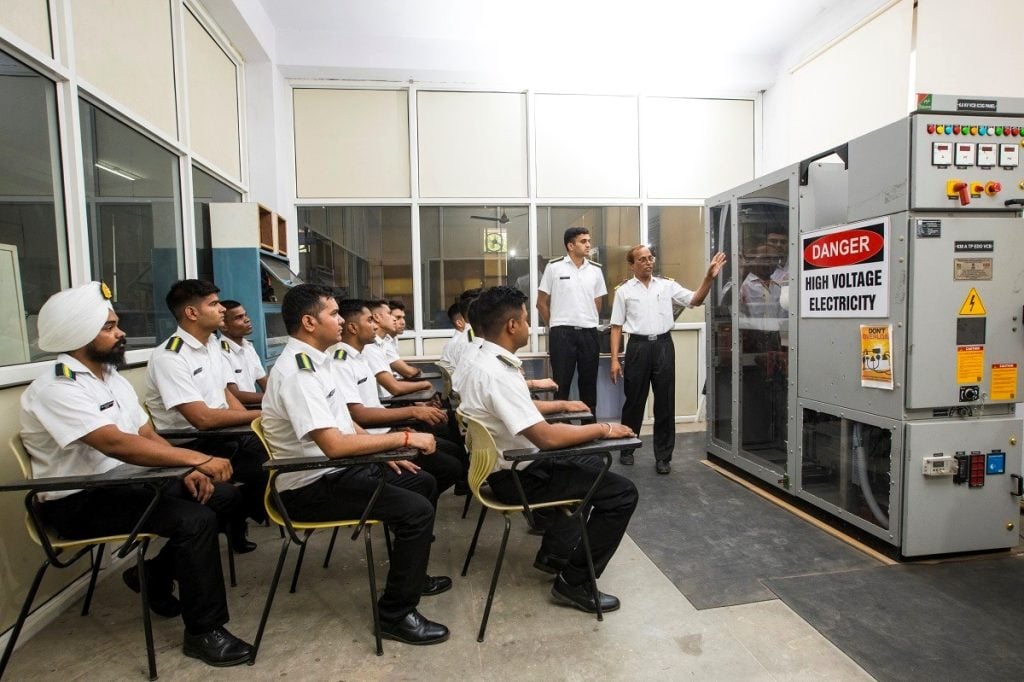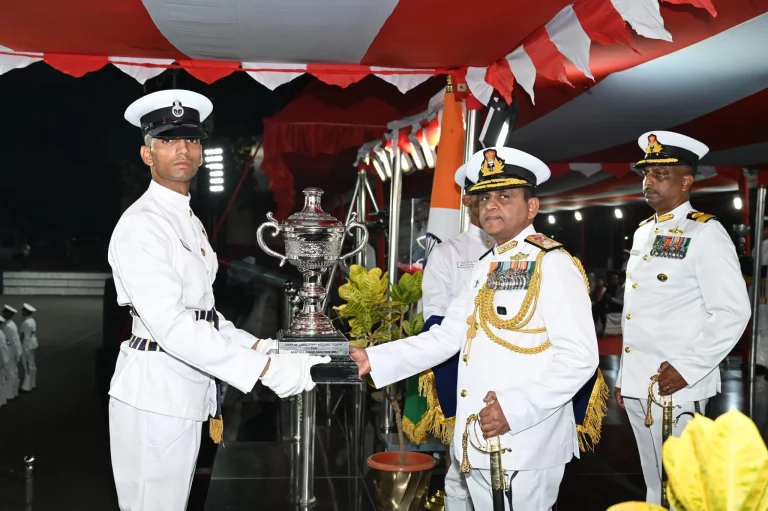Embarking on a career in the Merchant Navy after graduation opens up a world of adventure and opportunities. Whether you’re drawn to the allure of the open sea or the technical challenges of maritime engineering, joining the Merchant Navy can be a fulfilling and rewarding journey. Here’s a detailed guide to help you navigate the path to a career at sea.
1. Choosing the Right Course and Role
After completing your graduation, the first step towards joining the Merchant Navy is to decide on the role you want to pursue. Common roles include deck officers, marine engineers, electro-technical officers (ETO), and catering staff. Depending on your interests and educational background, you can choose specialized courses such as Graduate Marine Engineering (GME) or Electro Technical Officer (ETO) training.
2. Meeting the Eligibility Criteria
Before you begin your journey, it’s essential to ensure that you meet the basic eligibility criteria for joining the Merchant Navy. Typically, candidates should have a degree in mechanical engineering, electrical engineering, or a related field for roles like GME or ETO. Additionally, candidates must be medically fit and meet the age requirements set by different training institutes.
3. Selecting a Reputable Training Institute
Choosing the right training institute is crucial for receiving quality education and enhancing your job prospects. Look for institutes approved by the Directorate General of Shipping or recognized internationally. These institutes offer comprehensive courses that cover both theoretical knowledge and practical training required for a career in the Merchant Navy.
4. Applying for the Course
Once you’ve chosen your course and institute, complete the application process, which may involve entrance exams or interviews. Display your passion, commitment, and readiness to learn during the selection process to increase your chances of acceptance.
5. Completing the Training
Upon acceptance into the course, focus on completing your training diligently. These courses typically last between six months to a year and include classroom learning as well as practical training on ships. Make the most of this time to acquire the skills and knowledge necessary for your chosen role.
6. Obtaining Necessary Certifications
After completing your training, you’ll need to obtain certifications such as Standards of Training, Certification, and Watchkeeping (STCW). These certifications are mandatory for working on ships and ensure that you meet international safety and competence standards.
7. Exploring Job Opportunities
With your training and certifications in hand, it’s time to explore job opportunities in the Merchant Navy. Many training institutes have placement cells that assist graduates in connecting with shipping companies. Additionally, you can explore job portals specializing in maritime careers or apply directly to shipping companies.
8. Preparing for Life at Sea
Life at sea presents unique challenges and experiences. Prepare yourself mentally and physically for long periods away from home and the demanding nature of the job. Build strong relationships with your crewmates, maintain your physical fitness, and embrace the adventure that awaits you.
9. Continuing Learning and Growth
The maritime industry is ever-evolving, and continuous learning is essential for career advancement. Stay updated with industry developments, pursue further certifications or specializations, and seize opportunities for growth and advancement within the Merchant Navy.
10. Enjoying the Journey
Joining the Merchant Navy is not just a career choice; it’s an adventure. Embrace the opportunity to explore new places, meet diverse people, and experience the thrill of life at sea. With dedication, hard work, and a spirit of adventure, you can build a rewarding career in this dynamic and exciting field.
Departments in the Merchant Navy
Working in the Merchant Navy is akin to being part of a unique family, where each member plays a vital role in the smooth operation of the ship. Here’s a closer look at some key departments in the Merchant Navy:
1. Deck Department
The Deck Department is responsible for navigation, safety, and communication on the ship. Deck officers and crew members steer the ship, plot its course, and ensure safe navigation through various weather conditions.
2. Engine Department
The Engine Department is the powerhouse of the ship, responsible for maintaining and operating the ship’s engines, machinery, and power systems. Engineers and technicians in this department ensure that the ship remains operational at all times.
3. Catering Department
The Catering Department is responsible for providing meals, maintaining living quarters, and ensuring the well-being of the crew. Cooks, stewards, and other staff members in this department play a crucial role in keeping the crew nourished and comfortable.
4. Electrical Department
The Electrical Department manages the ship’s electrical systems, including lighting, communication systems, and navigation equipment. Electricians and technicians in this department ensure that all electrical systems function correctly.
5. Medical Department
The Medical Department provides healthcare services to the crew, managing emergencies, and offering support during illness or injury. Doctors, nurses, and medical assistants in this department ensure the health and well-being of the crew members.
6. Communications Department
The Communications Department is responsible for maintaining communication with the outside world, including other ships, ports, and maritime authorities. Radio operators and communication officers manage the ship’s communication systems, ensuring effective communication at all times.
Job Opportunities in the Merchant Navy After Graduation
Graduates have a wide range of job opportunities in the Merchant Navy, depending on their skills, qualifications, and interests. Here are some common roles that graduates can pursue:
1. Deck Officer
Deck officers are responsible for navigation, cargo operations, and safety on the ship. They oversee the ship’s crew, ensure compliance with maritime regulations, and navigate the ship safely to its destination.
2. Marine Engineer
Marine engineers are responsible for maintaining and repairing the ship’s engines, machinery, and equipment. They troubleshoot mechanical issues, conduct routine maintenance, and ensure the smooth operation of the ship’s propulsion systems.
3. Electro-Technical Officer (ETO)
ETO’s are responsible for maintaining the ship’s electrical and electronic systems, including lighting, communication systems, and navigation equipment. They troubleshoot electrical issues, conduct repairs, and ensure the safety and reliability of the ship’s electrical systems.
4. Ratings (Crew)
Ratings work as part of the deck or engine crew, assisting officers and engineers in various tasks. They may be involved in cargo handling, maintenance, cleaning, and other duties essential for the smooth operation of the ship.
5. Catering Staff
Catering staff are responsible for preparing meals, managing provisions, and ensuring the well-being of the crew. They work in the ship’s galley, preparing a variety of meals to meet the dietary needs and preferences of the crew.
Merchant Navy Preparation Tips and Strategy
Preparing for a career in the Merchant Navy requires careful planning and preparation. Here are some tips and strategies to help you succeed:
1. Understand the Requirements
Before you begin your preparations, familiarize yourself with the eligibility criteria and requirements for joining the Merchant Navy. Research different roles, educational qualifications, and training courses to determine the best path for you.
2. Stay Physically Fit
Physical fitness is essential for a career at sea. Engage in regular exercise, maintain a healthy lifestyle, and undergo medical check-ups to ensure that you meet the physical fitness standards required for maritime roles.
3. Improve Your English
Strong English skills are crucial for effective communication onboard ships. Practice reading, writing, and speaking in English, and consider taking language courses or using language learning apps to improve your proficiency.
4. Study Mathematics and Science
Mathematics and science are foundational subjects for many roles in the Merchant Navy, particularly technical roles like engineering and navigation. Brush up on your math and science skills and practice solving problems to improve your proficiency.
5. Prepare for Entrance Exams
Many maritime training institutes and shipping companies require candidates to pass entrance exams as part of the selection process. Study relevant topics, practice with sample papers or mock tests, and focus on time management and accuracy during exams.
6. Join a Training Course
Enroll in a maritime training course to acquire the necessary knowledge and skills for a career in the Merchant Navy. These courses cover a wide range of topics, including navigation, engineering, safety procedures, and maritime regulations.
7. Gain Practical Experience
If possible, gain practical experience related to the Merchant Navy through internships, volunteer work, or short-term courses. Practical experience can provide valuable insights into the maritime industry and enhance your job prospects.
8. Stay Informed
Stay updated with developments in the maritime industry by reading industry news, following maritime blogs and forums, and networking with professionals in the field. This knowledge will help you stay informed about industry trends and opportunities.
9. Prepare for Interviews
Practice answering common interview questions and develop your communication skills to effectively convey your strengths and experiences. Be prepared to discuss your educational background, skills, and motivations for pursuing a career in the Merchant Navy.
10. Stay Positive and Persistent
Preparing for a career in the Merchant Navy can be challenging, but maintaining a positive attitude and staying persistent are key to success. Set realistic goals, stay motivated, and persevere through obstacles to achieve your dreams of a career at sea.
In conclusion, joining the Merchant Navy after graduation offers a unique and rewarding career path filled with adventure, challenges, and opportunities for growth. By following the steps outlined in this guide and preparing diligently, you can embark on a fulfilling journey at sea and build a successful career in the dynamic maritime industry.
FAQs
1. What is the Merchant Navy?
The Merchant Navy refers to the fleet of commercial ships that transports cargo and passengers across the world’s oceans and waterways. It plays a vital role in international trade and commerce.
2. Who can join the Merchant Navy after graduation?
Graduates from various disciplines such as engineering, science, and hospitality can pursue careers in the Merchant Navy. However, specific eligibility criteria and requirements vary depending on the role and training program.
3. What are the common roles available in the Merchant Navy for graduates?
Common roles for graduates in the Merchant Navy include deck officers, marine engineers, electro-technical officers (ETO), catering staff, and ratings (crew members). Each role has its own responsibilities and requirements.
4. What are the educational qualifications required to join the Merchant Navy after graduation?
The educational qualifications required vary depending on the role. Typically, candidates need a degree in mechanical engineering, electrical engineering, or a related field for technical roles like marine engineering or ETO. Graduates with degrees in hospitality or culinary arts can pursue careers as catering staff.
5. What courses are available for graduates interested in joining the Merchant Navy?
There are specialized courses available for graduates interested in joining the Merchant Navy, such as Graduate Marine Engineering (GME) and Electro Technical Officer (ETO) training. These courses provide the necessary theoretical knowledge and practical skills required for a career at sea.
6. How can I apply for courses in the Merchant Navy?
Interested candidates can apply for courses in the Merchant Navy through approved maritime training institutes. The application process typically involves filling out an application form, appearing for entrance exams or interviews, and meeting the eligibility criteria set by the institute.
7. What certifications are required to work in the Merchant Navy?
To work in the Merchant Navy, candidates need to obtain certifications such as Standards of Training, Certification, and Watchkeeping (STCW). These certifications ensure that individuals meet international safety and competence standards required for working onboard ships.
8. Are there job placement opportunities available after completing training in the Merchant Navy?
Yes, many maritime training institutes have placement cells that assist graduates in finding job opportunities with shipping companies. Additionally, graduates can explore job portals specializing in maritime careers or apply directly to shipping companies.
9. What is life like at sea in the Merchant Navy?
Life at sea in the Merchant Navy is unique and offers a blend of adventure, challenges, and opportunities for personal and professional growth. It involves long periods away from home, demanding work schedules, and the opportunity to explore new places and cultures.
10. Is a career in the Merchant Navy financially rewarding?
A career in the Merchant Navy can be financially rewarding, with opportunities for competitive salaries, benefits, and career advancement. Salaries vary depending on factors such as rank, experience, and type of vessel.

























2 thoughts on “Ways To Join Merchant Navy After Graduation”
Im Nithin
Electrical & electronic engineering Department Diploma Branch
I am Intrested